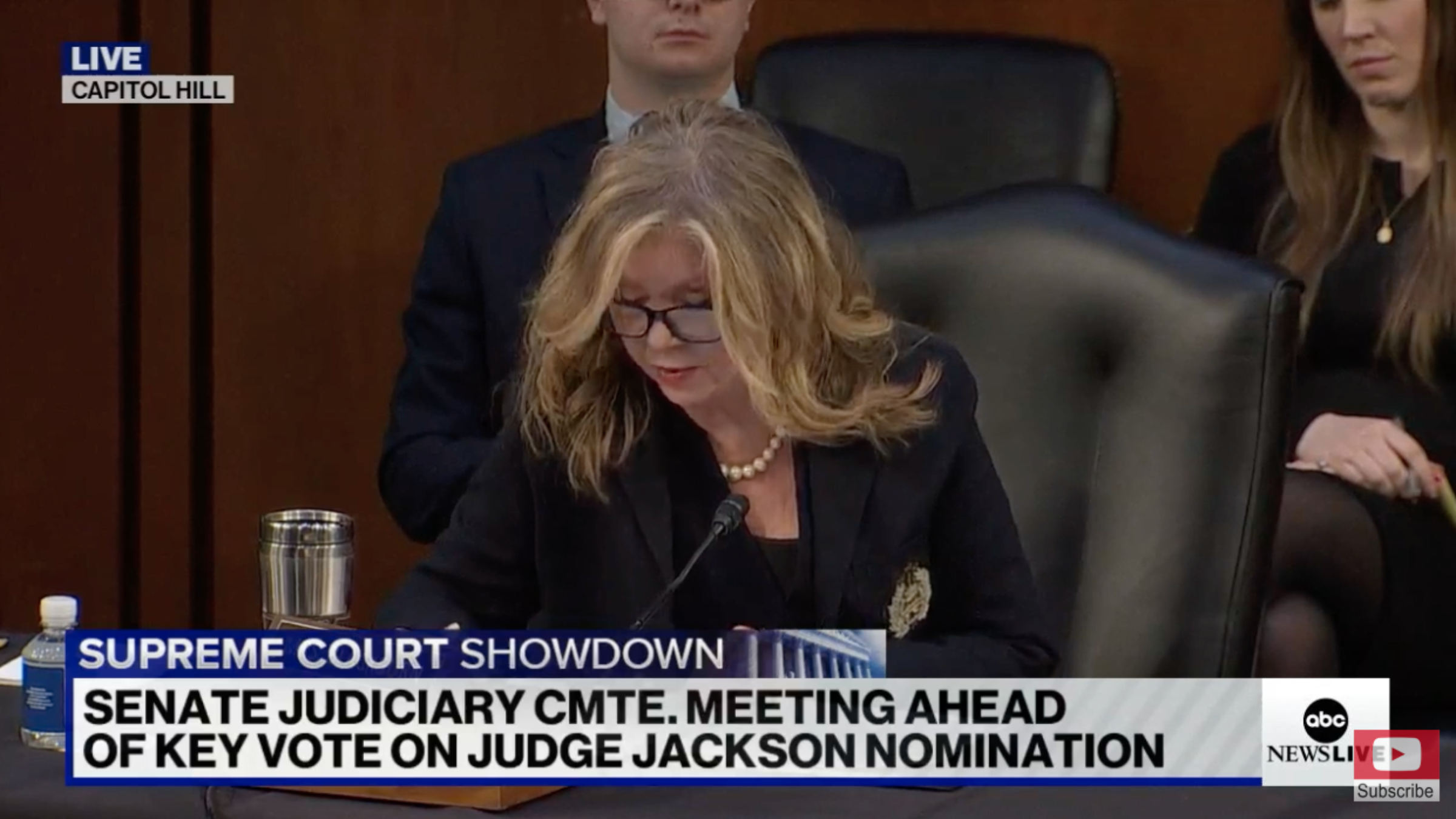Someone on Monday afternoon, pending California Senator Alex Padilla’s complicated travel schedule, the Senate Judiciary Committee will vote on its recommendation regarding the nomination of Ketanji Brown Jackson to the Supreme Court. It is expected to deadlock along party lines, 11-11, but under the terms of the Senate’s power-sharing agreement, Democratic leadership can effectively break the tie by filing a “discharge petition”—a formality that will allow Democrats to advance her nomination to the full Senate. That final vote is expected to occur later this week.
This morning’s committee hearing was a near-replica of Jackson’s confirmation hearings, consisting of various GOP senators yelling incoherently about “crime” and imputing the actions of criminal defendants to the public defenders who represent them. Arkansas Senator Tom Cotton claimed he couldn’t vote in favor of Jackson because she will “coddle criminals and terrorists.” Missouri Senator Josh Hawley’s latest wink at QAnon believers outlined a vision of justice that can be summarized as “lock them all up forever”: “More people ought to be spending more time behind bars,” he said. Tennessee’s Marsha Blackburn hit a variety of transphobic talking points in a diatribe that only occasionally mentioned Jackson, but went out of its way to get upset at Disney for re-recording an automated greeting at its theme parks.
Clip via YouTube
While affirming his vote for Jackson, Delaware Senator Chris Coons, a Democrat, summarized the Republican senators’ lines of questioning as “withering, even abusive,” which feels like a polite understatement.
Thus far, Maine’s Susan Collins is the only Republican senator who has announced she’ll vote to confirm Jackson—a decision that dispenses with the need for Vice President Kamala Harris to intervene to break a 50-50 tie. Party-line votes (or near-party-line votes) out of committee aren’t new; the nominations of Justices Neil Gorsuch, Brett Kavanaugh, and Amy Coney Barrett all went to the full Senate without Democratic support. The Republican gripes about Jackson, however, have precious little to do with Jackson or the circumstances of her nomination. (Several Republicans were effusive in their praise of Jackson’s qualifications and character, even as they swore they could never vote for her.) Instead, these attacks are transparent efforts to rile up the party’s base as much as possible.
No senator better embodies the GOP’s lurch to the right than South Carolina’s Lindsey Graham, who supported Jackson’s confirmation to a federal appeals court position last year and yet suddenly, mysteriously found a reason to oppose her this time around. As Graham noted, this will be the first time he will oppose a Supreme Court nominee of a president of either party. “Now that you’re talking about the Supreme Court, you’re making policy, not just bound by it,” he explained on Monday, a statement that sort of belies his party’s insistence that the previous three nominees, all of whom he enthusiastically supported, could be counted on to set aside politics when they took the bench.
Clip via YouTube
In announcing his vote, Graham also promised an even uglier judicial nominations landscape going forward if Republicans take control of the Senate in this fall’s midterm elections. “If we were in charge, she would not have been before this committee. You would have had someone more moderate than this,” Graham said. “The process you started to go to a simple majority vote is going to rear its head pretty soon.” The fact that it was Republicans who eliminated the Senate filibuster for Supreme Court nominees in order to confirm Gorsuch in 2017, thereby enabling Democrats to confirm Jackson even absent Republican support, was strangely absent from Graham’s recounting.
Monday’s vote gave Senate Judiciary Committee Republicans their last opportunity to outline a cheat-sheet for far-right conspiracy theories. Their performances were not enough to stop Jackson’s confirmation, but did solidify the GOP’s place as the political home for right-wing extremists, QAnon true believers, and January 6 insurrectionists. Graham and company can at least be proud of that.



